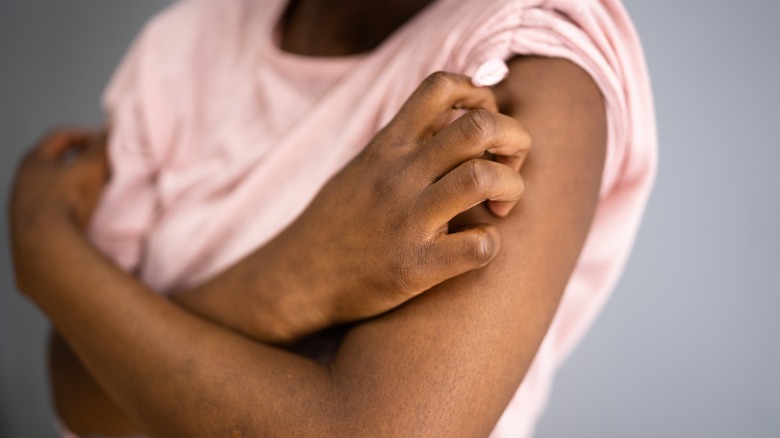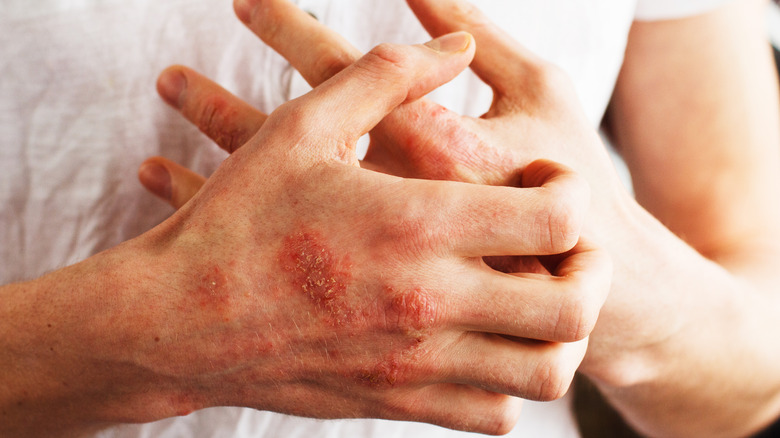Is Psoriasis Contagious?
Characterized by raised patches of dry, flaky skin, psoriasis affects approximately 7.5 million people in the United States, per the American Academy of Dermatology Association (AADA). While there are different types of psoriasis, 80-90 % of those with the condition have plaque psoriasis. These red patches of scale-like skin can affect any area of the body and can be experienced as an itching or burning sensation, especially when picked at (via Healthline).
The severity of psoriasis can vary from person to person. While some people may experience one or two psoriasis patches on their body, others can have it all over. According to Healthline, psoriasis is considered mild when it covers less than 3% of the body and severe if it affects 10% or more of the skin's surface.
According to WebMD, psoriasis can often resemble other skin conditions. Eczema, rosacea, and hives might be mistaken for psoriasis thanks to the patches of red, dry, skin that develop. Ringworm, a very contagious fungal infection, can also look like psoriasis due to the telltale red, scaly rings that develop on the skin (via WebMD). Because psoriasis can look like several other skin conditions, both contagious and not, you may be wondering which category it falls into.
Psoriasis is not contagious
According to the Centers for Disease Control and Prevention (CDC), psoriasis, unlike some other skin conditions it resembles, is not contagious. This is because psoriasis is considered an autoimmune disease, much like type 1 diabetes, rheumatoid arthritis, and lupus. Autoimmune diseases are triggered by an internal imbalance of the body's immune system, rather than a contagious virus or fungal infection, per WebMD. When you have an autoimmune condition, it causes your immune system to become confused and attack your healthy cells (via CDC).
With psoriasis, your immune system causes your skin cell growth to speed up. According to WebMD, over the course of a month, our skin cells are shed from our bodies with new cells taking their place. In people with psoriasis, however, an overactive immune system causes new cells to grow in just a matter of days. These new cells build upon other unshed cells, causing those raised patches of skin (via WebMD).
Although currently there is no permanent cure for psoriasis, there are many treatment options available to help slow cell growth and ease the symptoms. In addition to a variety of medications your doctor can prescribe, psoriasis may also be helped by light therapy as well as medicated creams and ointments, per WebMD.


